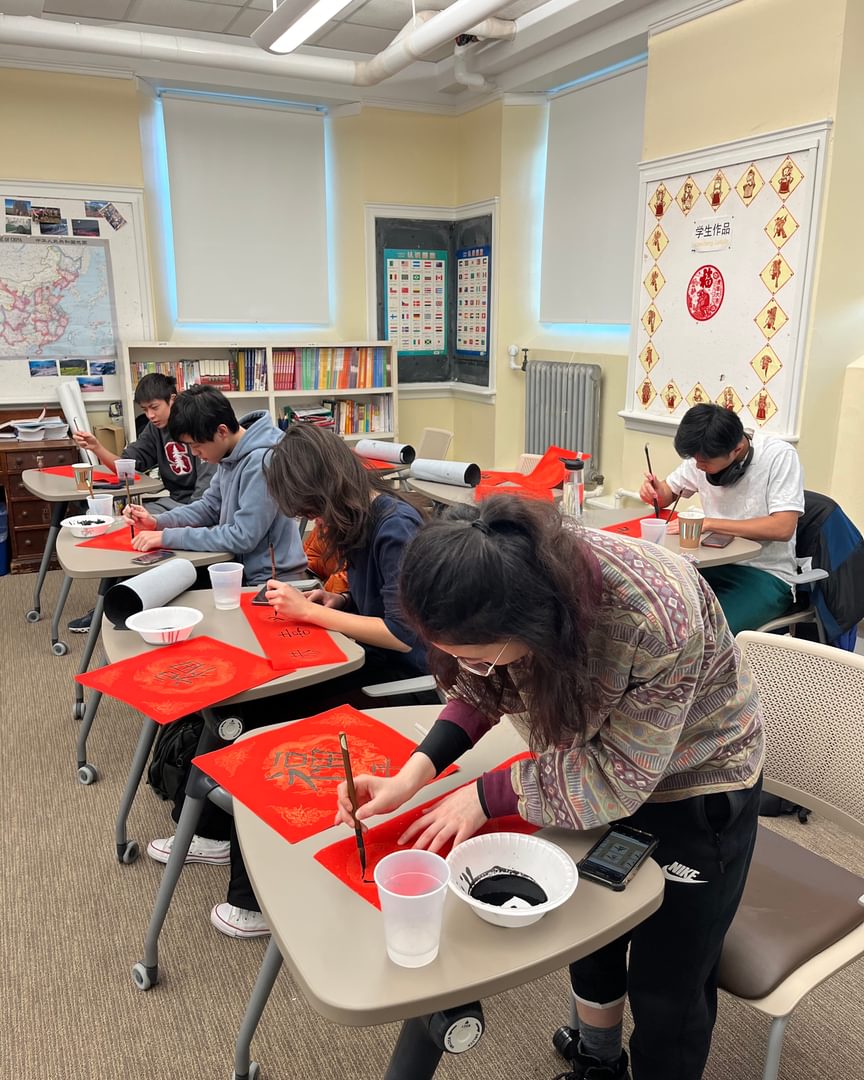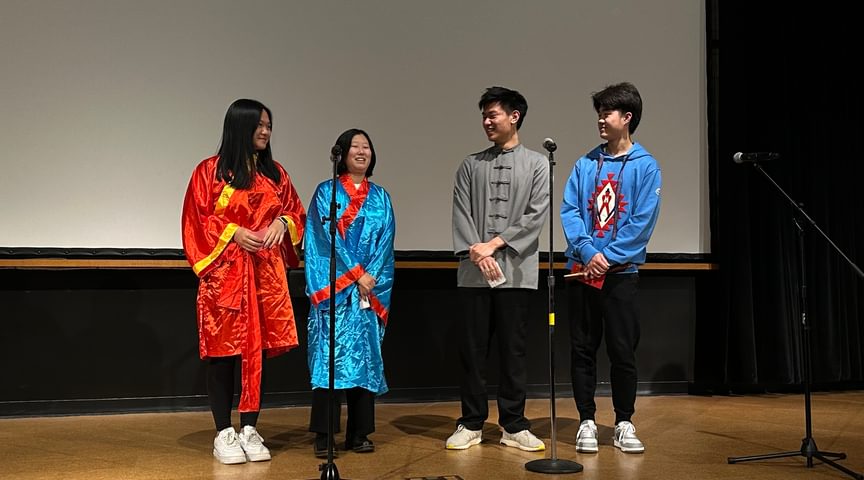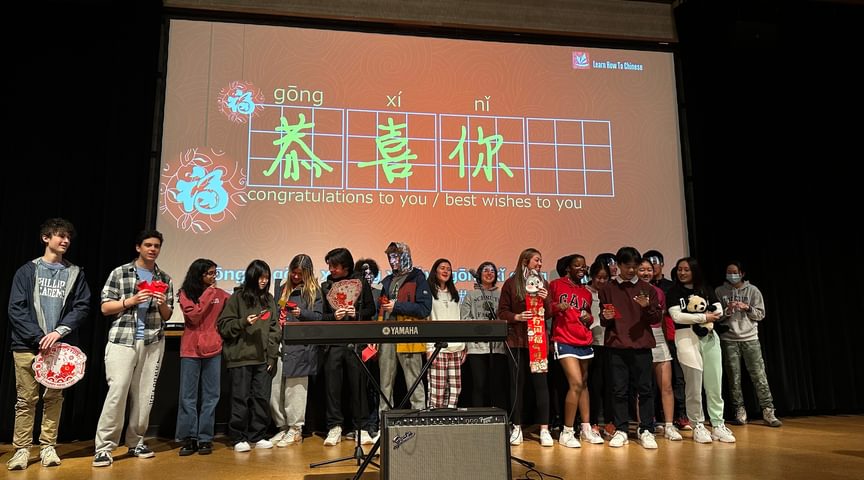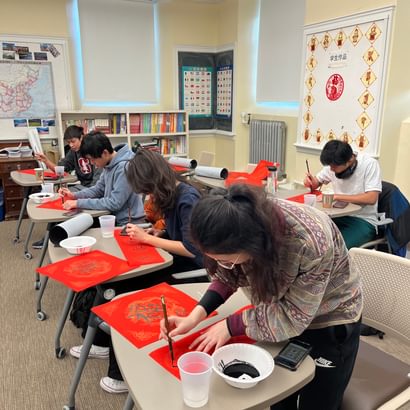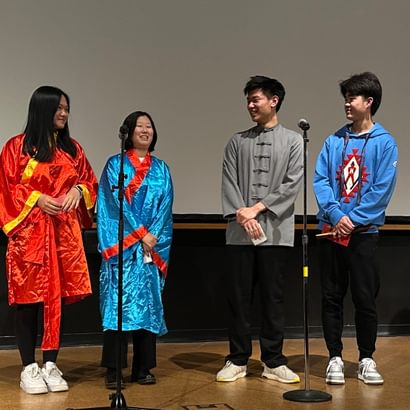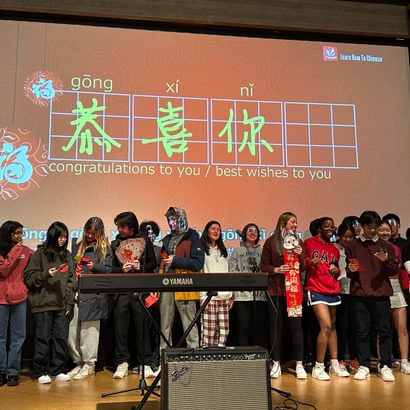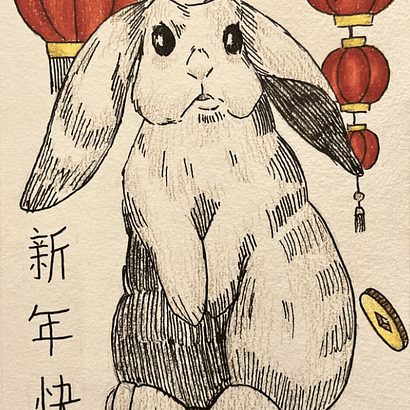
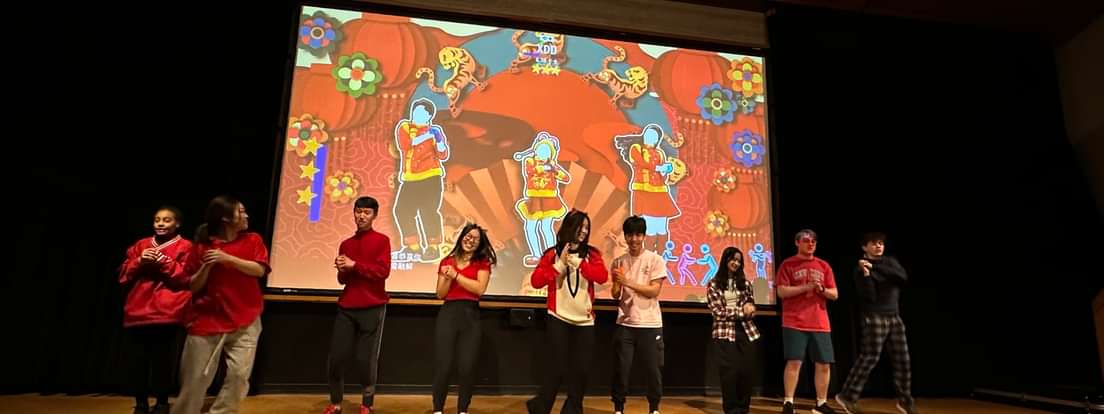
Chinese
Mandarin Chinese has the most native speakers among all languages mainly due to China’s large population. In addition to China, Mandarin is also spoken in Chinese communities of other countries worldwide. From a utilitarian perspective, sufficient proficiency of Mandarin can be an asset in the job market, can help to promote economic growth, and can assist intercultural communication. From a developmental perspective, learning Mandarin (and all languages), can allow learners to experience additional ways of thinking, feeling, and acting that may be unavailable in their native linguistic- and cultural environment. This kind of learning may nurture cross-cultural empathy and solidarity. The Chinese Department aims to support all students, whether they are new learners or have had previous experience, to acquire pragmatic language skills and enjoy the developmental benefits of learning an additional language.
Meet Our Instructors


Lilia Cai
Chair and Instructor in Chinese on the Dr. Yuan Han Instructorship, Co-Advisor of Asian Women Empowerment, 2018 Faculty Fellow of Brace Center for Gender Studies, Ed.D. in Leadership in Schooling [email protected] view full profileDr. Cai chairs the Chinese Department, and is a certified yoga instructor. As a scholar, her research interests include Asian American feminist leadership, the decolonization of global education, and reclamation of the mindfulness movement.
IN THE CLASSROOM:
Advanced Topics in Chinese: LGBTQ+ Literature and Media in China | CHI622
It might be surprising to many that there has been a literary and social media movement towards LGBTQ+ advocacy in China and other parts of Asia at the grassroots level. Working within a unique system of political censorship in China grounded in Confucianistic beliefs, LGBTQ+ literature is thriving through a variety of forms of literacy including on-line books, manga, Anime, audio drama, television shows and social media. This literary movement is entirely consistent with the traditional Chinese culture and a history of the oppressed people fighting for freedom of expression and justice in creative ways. In this course, students will read works from the “Pure Love” genre – the literary genre that advocates for the idea of “love is love, regardless of gender,” with a focus on works about Chinese high school students’ lives. Students will also explore various forms of popular media that feature transgender and gender non-conforming people in order to better understand the concept of gender expressions within the Chinese context. Students will reflect on how this movement is both a manifestation of deeply ingrained Chinese values such as staying true to oneself and showing resilience in the face of obstacles, and a continuation of the tradition of using literature for collective healing and empowerment.
Mrs. Guo's teaching philosophy derived from the Chinese idiom Yīncáishījiào (to teach according to the ability of the student). She is always ready to face new challenges with students every day. She supports students in thinking about the world differently, collaborating with people effectively, and expressing ideas fluently in Chinese.
IN THE CLASSROOM:
Accelerated Chinese Sequence | CHI320
This third-level course follows CHI220 and continues the accelerated sequence of “three years in two” started in CHI120. The course moves at a fast pace and expects students to do thorough preparation and review independently outside of class. Much of the class time is devoted to oral proficiency development on concrete topics that are related to high school student lives and their perspectives. All students are expected to participate actively in class at the individual, small group, and whole-class levels. Written proficiency is equally important for this course. Students are expected to practice and improve writing through various tasks, including essay and other types of written assignments.

Lixia Ma
Chinese instructor, GJV Volleyball Head Coach, Advisor, House Counselor [email protected] view full profile“Teaching and learning always happen simultaneously. While I help students learn how to speak and write Chinese, play as a team on the volleyball court, grow as an independent and compassionate community member, they also inspire me to become a better teacher, coach, advisor and house counselor every day.”

Congmin Zhao
Instructor and Chair, Chinese Department, Step Aerobics and Dance Fitness Instructor, House Counselor, Academic Advisor, Faculty Interviewer for the Admission Office [email protected] view full profile“I enjoy interacting with students in various settings at PA. These students inspire me in different ways and motivate me to become a better teacher and a better person.”
Chinese 100: First-Level Chinese
Chinese 100 is the beginning-level Chinese course at Phillips Academy. In this course, students will learn the vocabulary, grammar, and cultural information that can help them to develop novice-level language proficiency and the cultural competence needed to appropriately engage in everyday communication in Chinese. The knowledge and skills (i.e., listening, speaking, reading, and writing) will be learned and practiced in the context of one’s personal life (e.g., hobbies, family, friends) and public life (e.g., school activities, shopping, transportation).
Chinese 540: Introduction to Chinese Literature
This course is designed for Juniors and Lowers with near-native fluency in spoken Chinese and familiarity with Chinese culture. It provides an overview of the historical timeline of literature through a brief introduction to a selection of China’s representative literary works, from classical poetry and essays to modern and contemporary novels.
Chinese 623: Advanced Topics in Chinese
This course guides students through some Chinese texts used in higher education to explore various topics in modern China, such as women’s status, the education system, business activities, Chinese news, and China’s entertainment industry. Students will develop advanced-level Chinese language proficiency that allows them to become more comfortable discussing complex social and historical issues.






